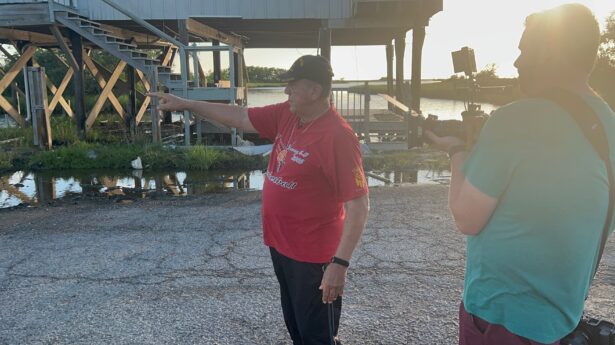The Unitarian Universalist Service Committee advances human rights through grassroots collaborations.
September 2, 2016, Rights Reading
September 2, 2016
Our weekly roundup of what we’re reading: a few select articles from the front lines of human rights that we don’t want you to miss.
1. This Man Made An Airbnb For Refugees Looking For A Place To Stay, Elyse Wanshel, Huffington Post, August 29, 2016
Social entrepreneurism, support for refugees, and the way many of us plan for our visits to leisure travel meet in an unexpected but logical combination. Amr Arafa, a resident of Washington, D.C., is in the process of launching EmergencyBNB, a site that “connects refugees and victims of domestic violence with people in the United States willing to open their homes for a few days for free.”
The site is in its early stages and as of the writing of Wanshel’s article, no one had used it to book a room. It’s based on Arafa’s current practice of offering his own studio apartment to refugees and victims of domestic violence on Airbnb, charging the minimum of $10 per night.
“It is time that the sharing economy is considered as a means of helping others and not just as an economic opportunity,” Arafa says. “EmergencyBNB is not about the government giving you a place to stay. It’s about the fact that your neighbors care about you.”
Rights Reading readers can monitor the progress of Emergency BNB while continuing to network and learn about other ways to help refugees via UUSC’s Refugee Rapid Response Network and Online Refugee Toolkit.
2. DHS should follow DOJ’s lead and end use of privatized prisons Humza Kazmi, The Hill, August 29, 2016
The recent good news that the federal Department of Justice (DOJ) will end its practice of contracting with private for-profit contractors to incarcerate prisoners is only the first step in ending this practice, as noted by Sen. Bernie Sanders and others. Until the Department of Homeland Security (DHS) follows suit and cancels similar contracts, refugees and asylum seekers will continue to suffer behind bars in facilities the DOJ found to be costly and plagued with civil rights violations.
“There is no legitimate reason for these families to be detained. But now, as a result of perverse incentives created for the benefit of a profit-focused prison industry, America’s response to the ‘huddled masses yearning to breathe free’ is to lock them up. It’s time to end family detention,” writes Humza Kazmi.
Kazmi’s article tells the story of how Corrections Corporation of America won a $1 billion contract to expand its prison in Eloy, Arizona, but used the money to build a new facility a thousand miles away in another state. He also cites the DHS use of its “credible fear interview” requirement for releasing refugees from detention as an excuse to hold them for far longer than the required 20 days prior to such a hearing. Kazmi references the hunger strike of Las Madres Berks as an example of this abuse of human rights.
UUSC stands in solidarity with Las Madres Berks and all refugees detained in prison-like conditions at U.S. “detention centers.”
3. It’s Children Against Federal Lawyers in Immigration Court Fernanda Santos, New York Times, August 20, 2016
“Suspected killers, kidnappers and others facing federal felony charges, no matter their ages, are entitled to court-appointed lawyers if they cannot afford them. But children accused of violating immigration laws, a civil offense, do not have the same right. In immigration court, people face charges from the government, but the government has no obligation to provide lawyers for poor children and adults, as it does in criminal cases.”
Fernanda Santos’s article sheds light on one of the most horrific aspects of U.S. immigration policy, documenting cases in which children as young as 10 years old must appear in court without legal representation, acting as their own lawyers. It’s because so many children are being apprehended along the U.S. southern border that public interest law firms cannot keep up with the demand to represent them at their hearings. And sometimes, judges refuse to wait.
Having a lawyer makes a huge difference in the outcomes of these hearings. Since 2004, more than half of all children appearing in court without a lawyer were deported, while only 10% of those with legal representation were sent back.
It’s not like there aren’t federal officials who agree that this is an intolerable situation. The federal Department of Health and Human Services (HHS) has spent $55 million to find defense lawyers for refugee children, and U.S. Attorney General Eric Holder says, “Though these children may not have a constitutional right to a lawyer, we have policy reasons and a moral obligation to ensure the presence of counsel.”
But without this constitutional right, refugee children without lawyers – many of whom don’t speak English well enough to understand their proceedings – still face a legal deck that is severely stacked against them, and a 90% chance that they will be deported.
The UU College of Social Justice and UUSC partner organization RAICES (Refugee and Immigration Center for Legal Services and Education) have created a volunteer program enlisting people with legal and Spanish-speaking skills to appear in court with children and other refugees during their hearings. Learn more about that program here.

